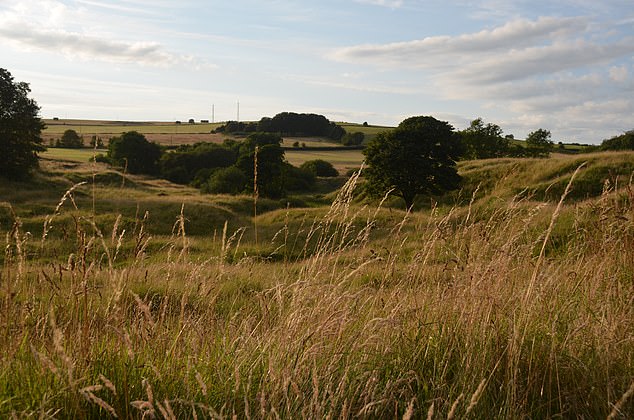It was one of the most technologically advanced empires in history.
But Romans may have been struggling with cognitive decline due to pollution, according to a study.
Researchers suggest that widespread lead pollution (caused by mining) lowered the IQ of virtually the entire European population at the time.
For their study, the Nevada Desert Research Institute team examined ice cores: columns of ice up to 3,400 meters long that are extracted by huge drills.
Gas bubbles trapped in the ice offer information about the atmosphere of bygone eras, while the presence of pollutants such as lead can be used to indicate industrial activity.
Analysis of three ice cores revealed that lead emissions in Europe increased dramatically around 15 BC. C. after the rise of the Roman Empire.
They remained high for about 150 years until the Empire began to decline.
Combining their findings with current research linking lead exposure to cognitive decline, the scientists estimated that lead contamination during this time would have resulted in an average increase in childhood blood levels of about 2.5 micrograms per deciliter.
It was one of the most technologically advanced empires in history. But Romans may have been struggling with cognitive decline due to pollution, study finds

For their study, the Nevada Desert Research Institute team examined ice cores: columns of ice up to 3,400 m long that are extracted by huge drills.
As a result, this would have led to a widespread cognitive decline of 2 to 3 IQ points across the Roman Empire.
“This is the first study to take a pollution record from an ice core and invert it to get atmospheric concentrations of pollution and then evaluate human impact,” said Joe McConnell, lead author of the study.
“The idea that we could do this 2,000 years ago is quite novel and exciting.”
Ancient lead contamination was largely due to silver mining, when the lead-rich mineral galena was smelted to extract silver.
Much of this lead was then released into the atmosphere.
In adults, high levels of lead exposure are linked to infertility, anemia, memory loss, cardiovascular disease, cancer, and reduced immune response.
Meanwhile, among children, even low levels of exposure have been associated with reduced IQ, concentration problems, and reduced academic success.
“Lead is known to have a wide range of impacts on human health, but we decided to focus on cognitive impairment because it’s something we can put a number on,” said co-author Nathan Chellman.

Gas bubbles trapped in the ice offer information about the atmosphere of bygone eras, while the presence of pollutants such as lead can be used to indicate industrial activity.

Combining their findings with current research linking lead exposure to cognitive decline, the scientists estimated that lead contamination during this time would have resulted in an average increase in childhood blood levels of about 2.5 micrograms per deciliter. Pictured: Grass-covered mounds mark the site of the Roman-era lead mine at Charterhouse in Mendip.
“An IQ reduction of 2 to 3 points doesn’t sound like much, but when applied to essentially the entire European population, it’s a big deal.”
Although ice core records show that lead pollution in the Arctic was 40 times higher in the early 1970s (at its peak), the study reveals how “humans have been impacting their health for thousands of years.” years through industrial activity,” the team said.
Their findings were published in the Proceedings of the National Academy of Sciences (PNAS).


